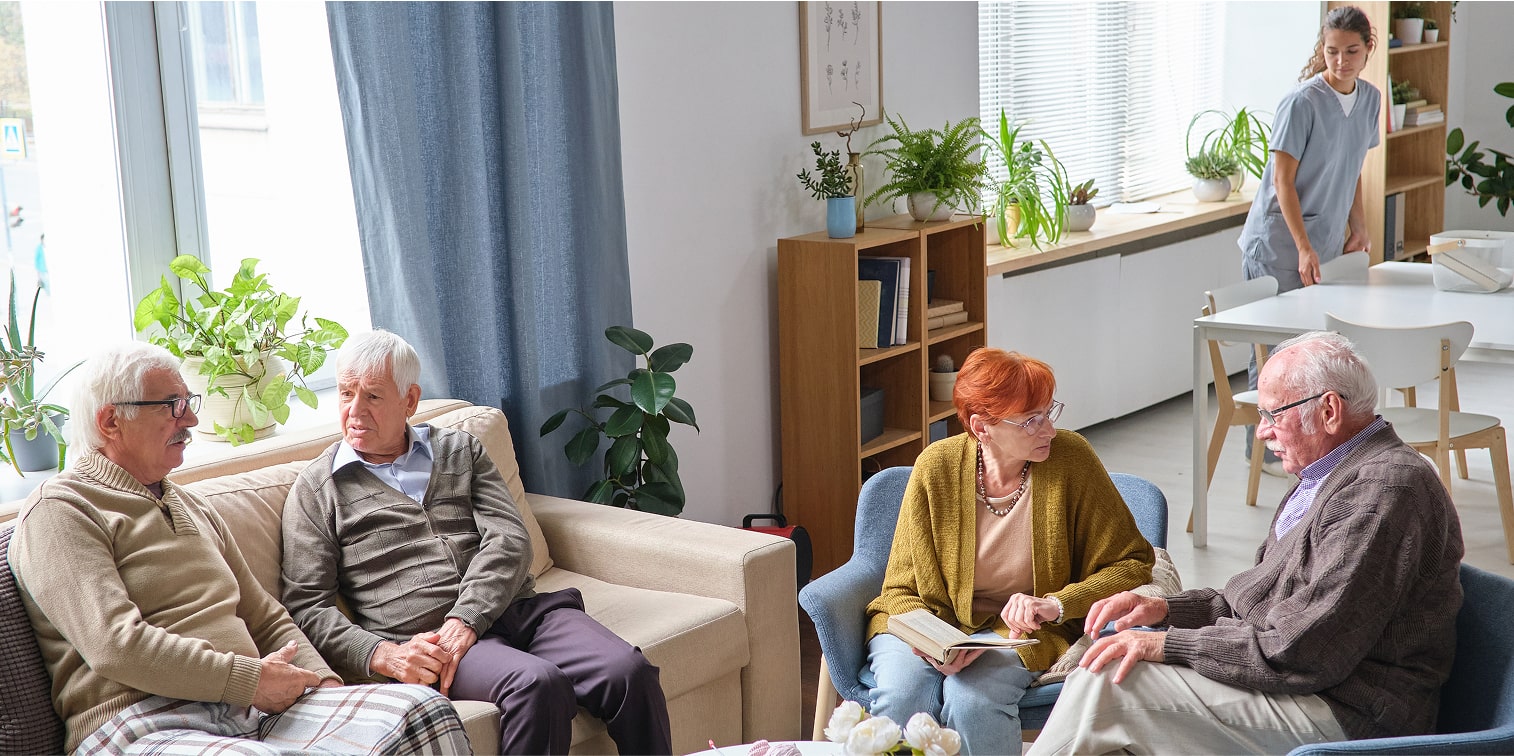Independent living can be safe and joyful with a few smart routines and simple upgrades. The ideas below reflect guidance from national aging, fitness, and safety organizations and are written in plain language for everyday use.
Home Safety Essentials
Clear walkways and remove clutter. Keep cords against walls and secure small rugs with non slip backing or remove them.
Improve lighting. Use bright, even light. Add night lights in halls and bathrooms. Reduce glare with lampshades.
Make stairs safer. Install sturdy handrails on both sides. Add contrasting tape on stair edges.
Update bathrooms. Use a walk in shower with a bench if possible. Install grab bars near the toilet and in the shower. Place non slip mats on wet surfaces.
Rearrange for access. Keep everyday items within easy reach. Consider moving a bedroom to the first floor if stairs are hard.
Prevent Falls
Ask your doctor or pharmacist to review medicines that may cause dizziness. Get vision and hearing checked each year.
Build balance and strength. Try walking, gentle strength work, chair exercise, tai chi, yoga, or an Active Older Adults class at your local YMCA.
Wear supportive shoes with good traction. Use a cane or walker if recommended by a clinician.
Take your time. Stand up slowly, especially at night. Keep a small light near the bed.
Consider a medical alert device if you live alone or have a history of falls.
Daily Routines That Lower Risk
Keep a simple checklist by the door. Keys, phone, glasses, wallet, and any needed medications.
Hydrate and eat regular meals to avoid lightheadedness. Set phone reminders if helpful.
Post emergency contacts on the fridge and by the phone. Include a trusted neighbor and a family contact.
Practice a short home safety walk each week. Look for new tripping hazards, burned out bulbs, or loose rails.
Safer Errands and Community Time
Tell someone where you are going and when you expect to be back if you live alone.
Carry your phone charged. Keep an emergency contact listed as ICE in your contacts.
Bring only the cards you need. Keep your purse close to your body or use a crossbody strap.
Keep your wallet in a front pocket.
Use well lit parking areas. When possible shop or walk with a friend or join a group program at a trusted community center.
Financial and Tech Safety Basics
Be cautious with unexpected calls, texts, emails, and door knockers. Do not share account numbers, Social Security number, or one time passcodes with anyone who contacts you unexpectedly.
If you are unsure about a message, stop and verify. Call the company using a number from your card or from the official website.
Set alerts on bank and credit card accounts for large purchases and money transfers. Review statements monthly.
Keep devices updated and use strong passwords with two step verification where possible.
Medication and Health Habits
Use a weekly pill organizer. Set phone or watch reminders for doses.
Keep an up to date list of medications, allergies, and conditions in your wallet and on your fridge. Some people use a File of Life form.
Schedule regular checkups. Talk with your clinician about bone health, balance, sleep, and mood.
Stay active most days. Aim for a mix of walking, balance, and gentle strength work that fits your abilities.
Emergency Readiness
Create a simple plan for fire, storms, and power outages. Keep flashlights with fresh batteries and a small backup charger for your phone.
Know your building exits and how to reach help after hours. Post your address next to each phone.
Consider a lockbox for a spare house key if emergency responders may need access.
Practice how to call for help. If you fall and cannot get up safely, call 911 and wait for assistance.
Build Your Support Circle
Choose one or two trusted contacts who agree to be your first call if something does not feel right.
Join a nearby program for older adults. Many YMCAs and senior centers offer fitness, social events, rides, and wellness checks.
Let neighbors know how to reach a family member in case of an emergency.
Small steps add up. Safer lighting, steady routines, and strong connections make independent living more secure and more enjoyable. Share these tips with friends and caregivers so everyone can support one another.
Article written by Sherri Combs, CEO and Founder of Silver Streak Senior Services



